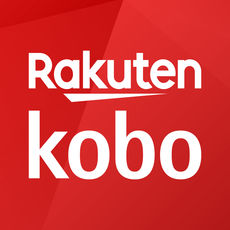All television networks interrupted their regular programming. In the background, the video of a large scale explosion followed by a mushroom cloud was running in a cataclysmic loop, with charred human remains scattered on streets, buildings collapsed, people running, walking to nowhere or simply standing still, or crouched in a daze. The captions, in all languages, mostly in English and Arabic, laid it simple: “Israel strikes Iran”.
In the foreground, the cameras showed a still image of the United Nations pulpit. The Permanent Security Council had been called for an emergency meeting, and the leaders of China, France, the Russian Federation, the United Kingdom and the United States had been meeting since the morning. The Presidents of the United States and Russia were to hold a joint conference, scheduled for 21:00 EST.
A day earlier, Iran had fired yet another missile test from its Sharud site in the North. In response, Israel had decided the time had come. Much like a date is about to expire on a milk carton, the threat of an Iranian nuclear or electromagnetic pulse attack had been imminent for too long. It was time to throw the carton out.
It was now 21:17 EST. The commentators’ voice-overs were biding time, each with their own theory and bias. “It had to happen” one asserted. As all networks were suddenly watching the same show, it felt like an open discussion. Another replied: “Sure, but did you see this? It’s a carnage.” “No it is not, that’s Al Jazeera’s coverage 5. I am one mile away from Arak, and there is no damage here. Lights out, but no fires.” “Fox, shut up, we know where you come from.” One chipped in, in Arabic, “Yaumul Hisab, this is The Day of Reckoning.”
One thing was sure, Israel had targeted nine sites, curiously shaping a Star of David: Darkhouin, Mo’Allem Kalayeh, Khondab, Arak, Esfahan, Natanz, Jabr Ibn Hagan and Parchin 6, and one more in its center, target Fordow, near Qom. A few seconds later, the mushroom cloud. Nobody could tell whether it was due to the Israeli missiles, or to the Iranian nuclear sites.
At 21:20, the Presidents of Russia and the United States walked into the United Nations conference room. They were flanked by all the members of the Permanent Security Council, and their aides. The first to speak was the Russian:
“The Security Council strongly condemns the attack by Israel on its neighbor Iran, and deplores the loss of civilian lives that has resulted. This is not an act of self-defense, as Iran has not threatened Israel by any means. We are working on a resolution that shall prevent Israel from conducting any such operation in the future, and are urging its leaders to implement an immediate cease-fire. It will include sanctions to make her regret her senseless act of terror.”
He then shook the hand of the American, and handed the pulpit over to him:
“My fellow Americans, and citizens of the World, we are witnessing an historical moment. My predecessor would have certainly agreed with the Russian President, having let him take-over most of the Middle East, and turned his back on our allies in the region. But I do not. To the contrary, I reiterate my long held belief, that Israel not only has the right to self-defend herself – Iran acted first, and not for the first time -, but also, and more essentially, the right and duty to exist. In annihilating Iran’s nuclear force, Israel and her allies have not only eliminated a threat to themselves, but the Russian threat to the world. You see [showing a chart of the Middle East], the red dots on this chart mark the countries where Russia has a strong presence, military or otherwise. It is pretty clear, and it is called the Russo-Islamic Alliance. The objective is no less clear. Russia has no economic interest in most of these barren lands, with the exception of Iran, Iraq, their oil, and that of their neighbors. Russia’s real interest lays in the access to the Arabian Sea, through the Strait of Bab el Mandeb on one side of the Arab Peninsula, and the Strait of Hormuz on the other. Through these Straits flow more than twenty percent of the world’s oil products.
Why the Arabian Sea? In geopolitics, it is called the Gate to India. And India is the gate to China, as in Asia. And Asia is the final destination in Russia’s Big Journey, the conquest of Eurasia. [Turning to President Putin] So, Vladimir – may I call you Vladimir? -, you just lost the key to the Big Journey. It is now time to change focus. Would you work with us on World Peace? [Turning back to the audience] I want to thank Israel for her patience through the years, for her tenacity, for her courage and determination. I want to thank all our friends and allies in the region, his Royal Highness King Salman, President al-Sisi, Sheikh Al Maktoum, President Masum, the Peshmerga, and all who understand that Peace is the only option. And I want to thank our men and women in uniform, here, in Israel and wherever they are to protect us, with their military might. God bless you, and God bless America.”




Comments